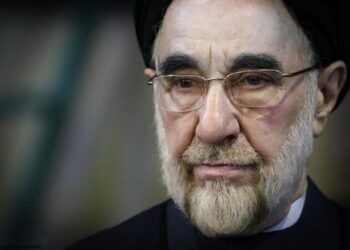What made this bold threat different from anything else in the past was the fact that it did not come from some loud-mouthed legislator or retired military officer, but from a member of the inner cabinet, the body that decides when Israel will go to war.
The threat was leveled in a calm voice by Strategic Affairs Minister Moshe Yaalon, one of eight members of the inner cabinet that rules on matters of war. Yaalon said Iran must be forced to face an existential question over its nuclear drive—that it must choose between getting an atomic bomb, or survival.
“We believe that in order to stop the Iranian military nuclear project, the regime in Tehran should face a dilemma—whether to have a bomb or to survive,” Yaalon told reporters in Jerusalem. He did not pound the table. He did not rant or rave. He laid the issue out as a matter for logical minds to grapple with.
He also made clear that it was not Israel’s preferred choice to go to war. “We prefer that the international community, led by the United States, will bring about this dilemma in order to convince the [Iranian] regime to give up its military nuclear pro- gram,” he said.
He stressed the need for political isolation and economic sanctions aimed at the banking and oil sectors over the military option.
But he made the choice Israel was offering Iran chillingly obvious. “Our policy is very clear—by one way or another, the military nuclear project in Iran should be stopped,” Yaalon said.
It was important to note that Yaalon did not threaten to retaliate against Iran with nuclear weapons if Iran should attack first. Rather, he said that Israel was prepared to attack to prevent Iran from ever getting a nuclear weapon in the first place.
Yaalon also was careful not to say that Israel would attack with nuclear weapons. Israel does not acknowledge having nuclear weapons. But he said the Islamic Republic’s choice was whether it wished to “survive.” That implicitly meant nuclear weapons since an attack with conventional weapons would not threaten the regime’s survival.
Many Israeli politicians have fired up their harshest rhetoric against the Islamic Republic over the years. But it is noteworthy that the war talk always comes from Israelis who are in no position to make that decision. The members of the inner cabinet who do make that decision have been mum.
Most notably, Avigdor Lieberman was one of the loudest ranters against Iran, breathing fire and anger, while a member of the Israeli Knesset. In 2009, he became minister of foreign affairs—and a member of the inner cabinet. Since taking office, he has rarely said anything about Iran, let alone vented his spleen at the Islamic Republic.














